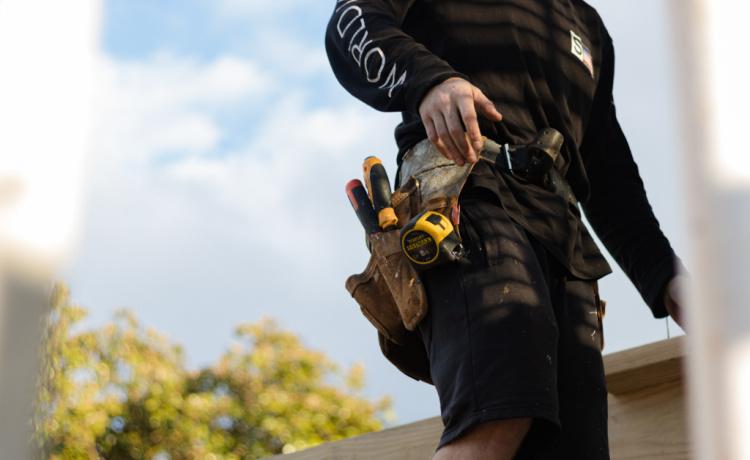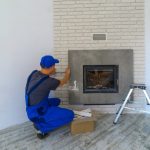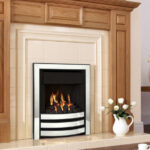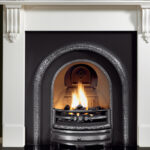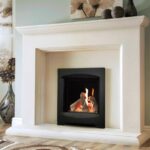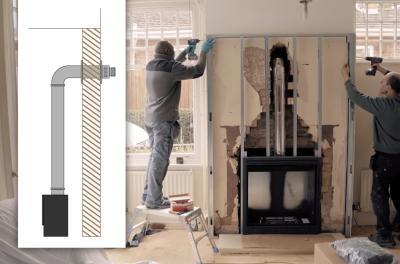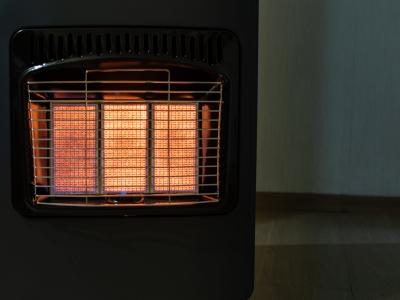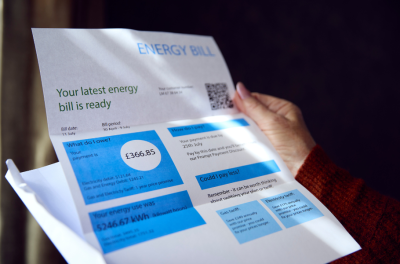We use cookies to improve your experience and our business. See our privacy/cookie policy or continue browsing to accept our use of cookies. View our cookie policy.
What Qualifications Should a Fireplace Installer Have?
Whether you’ve just bought a new fireplace, or you’re making some adjustments to your current fireplace, it’s important that you make sure that the person doing the work is qualified to do so. But, what qualifications should a fireplace installer have? Read on to find out.
Picking the right installer for your fireplace
Before you start looking for a fireplace installer, it’s important to note that there isn’t a ‘generic’ fireplace installation qualification. Instead, there are specific qualifications for each type of fireplace. For example, if you have a new wood burning stove that you’d like installing, then you’ll need to find a fitter who has a qualification specifically for installing wood-burning appliances.
We’ll detail each of these qualifications later on in this article.
Is it illegal to fit a fireplace yourself?
We understand that many people prefer to do many of their home installations and renovations themselves, but before you reach for the toolkit you may be wondering whether or not installing a fireplace yourself is illegal.
The answer isn’t straightforward.
If you’re installing something like a wood-burning stove then it’s not illegal to install it yourself. On the other hand, if you’re installing a gas fireplace then you have a legal obligation to have it installed by an appropriately qualified professional.
But, as the old saying goes ‘just because you can, doesn’t mean you should’. So, even with appliances such as wood-burning stoves where there’s no legal requirement to have a qualification, we would always recommend using a qualified professional.
What are the registered bodies for fireplace installers?
As well as knowing what qualifications fireplace installers require, it’s also useful to know a bit about who the registered bodies are (these are the organisations that provide the qualifications and with which installers generally have to register).
In the UK, we have different certifying bodies for different types of fireplace installation. Let’s take a look at each one.
Gas Safe Register
Of all the different fireplace installation certifying bodies, this is likely to be the one that you’ve heard of (mainly because gas fires are amongst the most popular types of fires in the UK).
The Gas Safe Register replaced CORGI as the UK’s gas registration body in 2009, and is a branch of the Health and Safety Executive (HSE).
By law, all gas engineers must be registered on the Gas Safe Register. Here’s how the organisation describes the registration process:
“A gas engineer can only be aligned to a registered business and be issued with a licence to undertake gas work on behalf of a registered business if they hold a valid and current qualification. This evidence of competence relates only to matters of gas safety and is obtained by every engineer through a recognised route of training and assessment (much as the DVLA issues driving licences to those who have demonstrated their competence by passing a driving test).”
“Registration is only given on the basis of the business having at least one gas safety qualified engineer.”
As a registered body, the Gas Safe Register also conducts regular inspections of gas engineers to ensure they are adhering to the organisation’s installation standards.
The Gas Safe Register also investigates safety-related complaints made against registered businesses/engineers for compliance with the Gas Safety (Installation and Use ) Regulations 1998. They will also investigate complaints in relation to the technical specifications required to meet the Building Regulations in England and Wales.
The Gas Safe Register’s work also extends to investigation reports of illegal gas work carried out by unregistered businesses or gas fitters - so it’s important that you use a qualified professional when fitting your gas fire. These investigations are reported to the Health and Safety Executive .
You can view prosecutions for illegal gas work here.
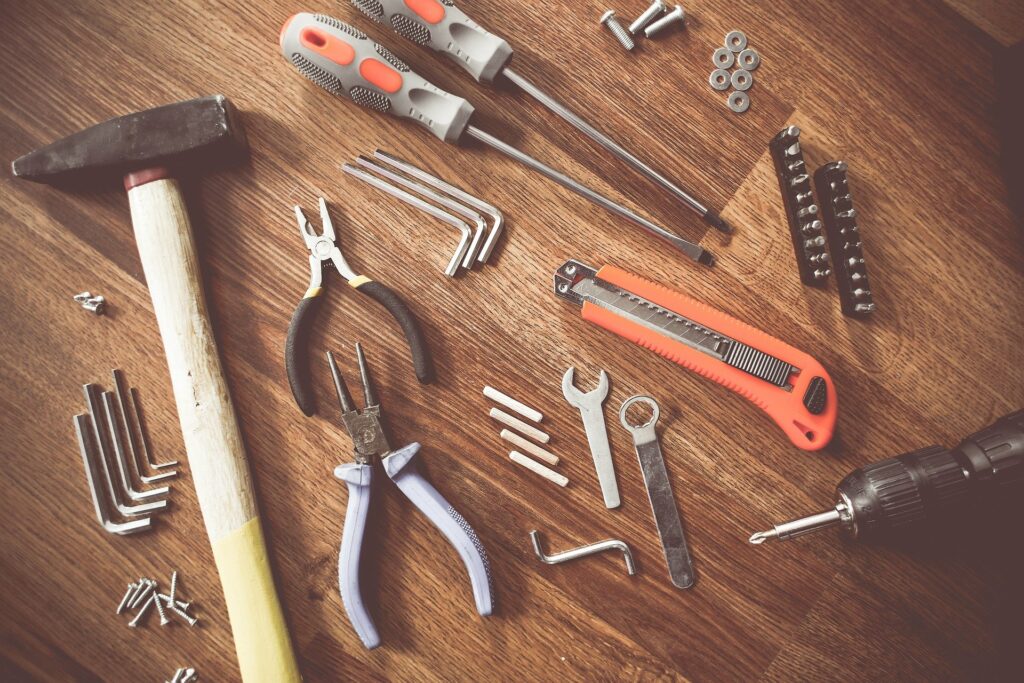
HETAS - Heating Equipment Testing and Approvals Scheme
HETAS is the body that oversees the approval of solid fuel domestic appliances, fuels, installers, servicing engineers and chimney sweeps.
HETAS (in collaboration with the Solid Fuel Association), runs a registration scheme for heating engineers with special skills in the installation and maintenance of solid fuel heating systems.
The HETAS competent person registration scheme covers a wide range of installations including dry appliances, appliances with boilers, solid mineral, wood and biomass appliances and hot water and heating systems.
In addition to running a registration scheme, HETAS also actively provides a wide range of training services in order to up-skill installers.
Unlike the installation of gas appliances, it’s not a legal requirement to use a HETAS qualified professional to install your solid-fuel burning appliance. However, if you decide to fit your solid fuel appliance yourself (or use a non-HETAS qualified professional), you will need to inform your local Building Control department before you begin work. Once the work has completed, they will then inspect it to ensure it meets the necessary standards. You will need to pay for the Building Control department’s time, so factor this into your installation budget.
OFTEC - Oil Firing Technical Association
OFTEC is a national body that represents the UK’s heating and cooking industries. The organisation aims to ‘promote the highest professional and technical standards for technicians and businesses’ working in these industries.
As part of its work, OFTEC helps to operate UKAS accredited registration schemes. For the average household, the most important of these schemes is OFTEC’s competent persons scheme. Technicians who are registered with this scheme must demonstrate a high level of competence and comply with all relevant building regulations and manufacturers’ installation requirements.
In addition to maintaining a register of appropriately qualified technicians, OFTEC conducts regular inspections to ensure that OFTEC registered technicians and businesses are continually delivering a high standard of work.
With nearly 10,000 technicians registered with OFTEC, if you need to hire a professional to install your oil-fueled heating appliance, you won’t be short of options.
NACS - National Association of Chimney Sweeps
If you’re having a new fireplace appliance installed, then you may also need your chimney inspected or sweeping (if you have one). As with other types of work on your home, it pays to use a qualified professional.
For chimney-related work, the National Association of Chimney Sweeps (NACS) maintains a register of qualified and experienced chimney sweeps. Of the registered sweeps, you’ll find three different types; members, master members and master chimney sweeps. NACS also runs training schemes to ensure that chimney sweeps are experienced and qualified to work on chimneys.
Registered Competent Person Electrical
If you’re installing a gas fire appliance that requires wiring into your home’s electrical system, then you’ll want to find an installer that’s suitably qualified to undertake electrical work.
The Registered Competent Person Electrical mark is a badge that shows that an electrician (or electrical company) is registered with an electrical Competent Person Scheme Operator, and has been authorised by the Government to self-certify that their work is compliant with building regulations. This means that any electricians registered with a Competent Person Scheme Operator will have met strict entry/registration requirements and that their work will be regularly assessed to demonstrate their ability and ongoing competence.
Who are the Competent Person Scheme Operators? Let’s take a look.

Dimplex SP16 Electric Wall Fire
NAPIT - National Association of Professional Inspectors and Testers
NAPIT is one of the Government’s Competent Person Scheme Operators. It acts as a membership scheme for installers in the electrical, heating, plumbing, ventilation, microgeneration and building fabric trades across the UK.
So, if you choose an electrician registered with NAPIT, you can be assured that they are qualified to conduct any electrical work associated with your fireplace.
Stroma Installer Certification
Like NAPIT, Stroma is one of the Government’s Competent Person Scheme Operators.
All installers registered with Stroma are subject to strict rules in order to join the scheme. They’re also subject to ongoing assessments to maintain their knowledge and skills.
With a Stroma certified installer, any work they undertake for you is guaranteed for 6 years. The guarantee covers works that fail to comply with the standards required by building regulations (plus the original installer is prevented from rectifying the works themselves).
The qualifications needed to install different types of fires
Now that we’ve looked at each of the main certifying bodies that cover professionals that may install your fireplace (depending on what type of fireplace you have), let’s next take a look at the specific qualifications an installer may require for each type of fireplace or appliance.
What qualifications do you need to install a gas fire?
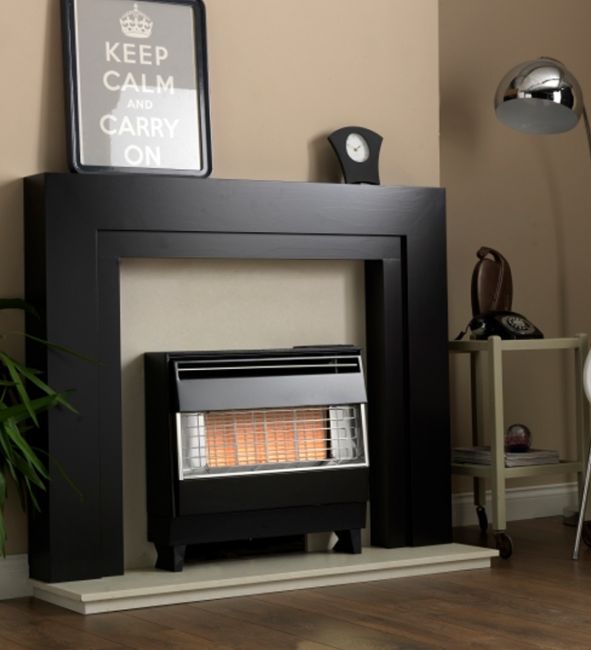
Robinson Willey Firegem Visa Highline Safeguard Outset Gas Fire
If you’ve got a new gas fire that you want installing in your home, then naturally you’ll want to contact a Gas Safe registered engineer to undertake the work. But, what exact qualifications will a gas engineer have?
In general a qualified gas engineer will have either undertaken an apprenticeship or taken a fast-track managed learning programme. The former is the traditional route, whilst the latter is a more modern development.
There are many different qualifications that a gas engineer may have taken. Some of the most common include:
- Core Domestic Gas Safety (CCN1).
- Combustion Performance Analysis (CPA1).
- Domestic Gas Central Heating, Boilers, and Water Heaters (CENWAT).
- Domestic Gas Cookers (CKR1).
- Domestic Gas Fires and Wall Heaters (HTR1).
Obviously, if you’re hiring someone to install a gas fire, then you’ll want to make sure they have that last qualification.
In addition to being suitably qualified and Gas Safe registered, you should check that the gas engineer is also a member of the Accredited Certification Scheme (ACS). Without these things a gas engineer is not legally qualified to undertake work in your home.
If you also need some electrical work carried out as part of the fireplace installation (e.g. if the appliance needs to be wired into your home’s electrical circuit), then you’ll need to find an appropriately qualified electrician.
The simplest way to check that an electrician is qualified is to ask for their NICEIC registration number and ID card. The National Inspection Council for Electrical Installation Contracting (NICEIC) is an organisation that regulates the training and work of electricians in the UK.
What qualifications do you need to install a solid-fuel / wood-burning fire or stove?
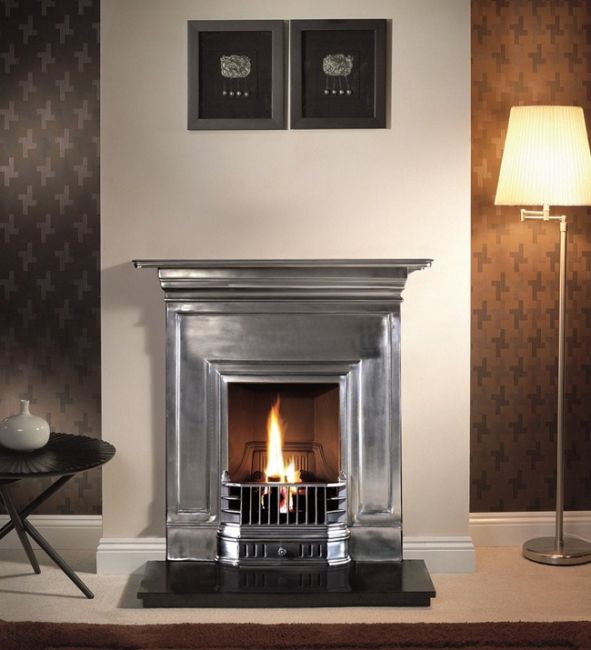
Gallery Collection Barcelona Cast Iron Combination Fireplace
As we mentioned earlier, you do not legally need to be qualified to install a solid-fuel burning fire or stove in your home. However, as the work will need to be inspected by your local Building Control department, it pays to use a professional so that the work gets signed off first time.
So, if you’re going to take the plunge and hire a professional to install your new solid-fuel burning appliance, what qualifications should they have?
Firstly, you’ll want to make sure that they’re registered with HETAS. This will ensure that they’re familiar and up-to-date with the relevant regulations associated with the installation of solid-fuel appliances.
If the installer is a member of HETAS then they will have been able to undertake a variety of training courses and qualifications. We’ve listed some of the most popular below:
- Solid Fuel Regulations & Standards (certified) (H002).
- Dry Appliance Installer Course (practical assessed) (H003).
- Wet Appliance Installer Course (practical assessed) (H004).
- Service and Maintenance Course (H009).
If you’re having an appliance installed, then you’ll certainly want to see if the installer has completed the dry appliance installer course.
A HETAS-registered installer will be able to certify that the installation complies with your local building regulations and notify the local authority on your behalf (if you want to install a solid fuel appliance yourself you will need to apply to the local authority building control department for a building notice which can cost up to £300 per job).
What qualifications do you need to install an oil burning fire/appliance?
As with solid fuel appliances, an oil appliance doesn’t legally need to be installed by a qualified professional. Theoretically, anyone can install an oil fired appliance - but as we’ve outlined earlier, it’s easier, safer and (generally) cheaper to hire a qualified professional to install it on your behalf.
Remember, if you install the appliance yourself, you will still need to have the work certified by a competent person (and you’ll have to notify the local authority building control department with all the costs which that entails).
When hiring a qualified professional to install your oil fired appliance, what qualifications should you look for?
First of all, you should ensure that they are OFTEC registered. At present there are just under 10,000 OFTEC registered technicians - so you won’t be short of choice.
OFTEC registered technicians are able to undertake a variety of qualifications, including:
- OFT-105E - Installation of oil combustion appliances, heating and vented hot water systems.
- OFT-600a - Installation of oil storage tanks and supply systems to fixed combustion appliances.
- OFT-102D/W - Commission, service, maintenance of vaporising burner appliances (D = dry systems, W = wet systems).
- OFT 103 - Full scope electrical Part P - for technicians carrying out domestic electrical work.
Depending on the work that’s being done, then you’ll want to make sure that the technician has the appropriate qualification listed above.
An OFTEC registered technician will be able to self-certify the installation of your oil fired appliance as well as notifying the building control department at your local authority.
What qualifications do you need to sweep a chimney?
You don’t legally need to have any qualifications to sweep a chimney, but as with many of the tasks associated with the installation, commissioning or installation of a fireplace, we strongly recommend that you use a qualified professional.
The National Association of Chimney Sweeps maintains a register of suitably qualified and experienced sweeps. You can access that register here.
If you’re hiring a chimney sweep you should ask them if they are NACS Qualified. The National Association of Chimney Sweeps currently offers two qualifications:
- NACS Qualified Chimney Sweep Course with CCTV Inspection & Surveys.
- NACS Qualified Chimney Sweep Course with CCTV Inspection.
If the chimney sweep has completed either of these courses you can be assured that they are suitably qualified to carry out any work on your chimney.
Time for a new fireplace?
If you’re reading this and currently looking for a new fireplace or stove (of whatever fuel type), then you’re in the right place!
Here at Direct Fireplaces, we have a massive range of fireplaces including everything from traditional surrounds to ultra-modern media wall electric fireplaces. And, if you’re unsure what type of fire is right for you, our expert team is always happy to answer any questions you may have.
Shop the complete range of fireplaces at Direct Fireplaces today
Read more fireplace advice and information on the Direct Fireplaces blog…
What is HETAS Certification & Why It’s Important for Installers & Customers | Do I Need a Fireplace in My New Home? | Everything You Need to Know About Buying a Fireplace
[related_products is_auto_added="1"]admin
Latest posts by admin (see all)
- Electric Fireplace Inserts Buying Guide - March 27, 2023
- What Types of Flueless Fires Are There? - February 23, 2023
- What Are the Best Contemporary Gas Fires? - January 17, 2023

